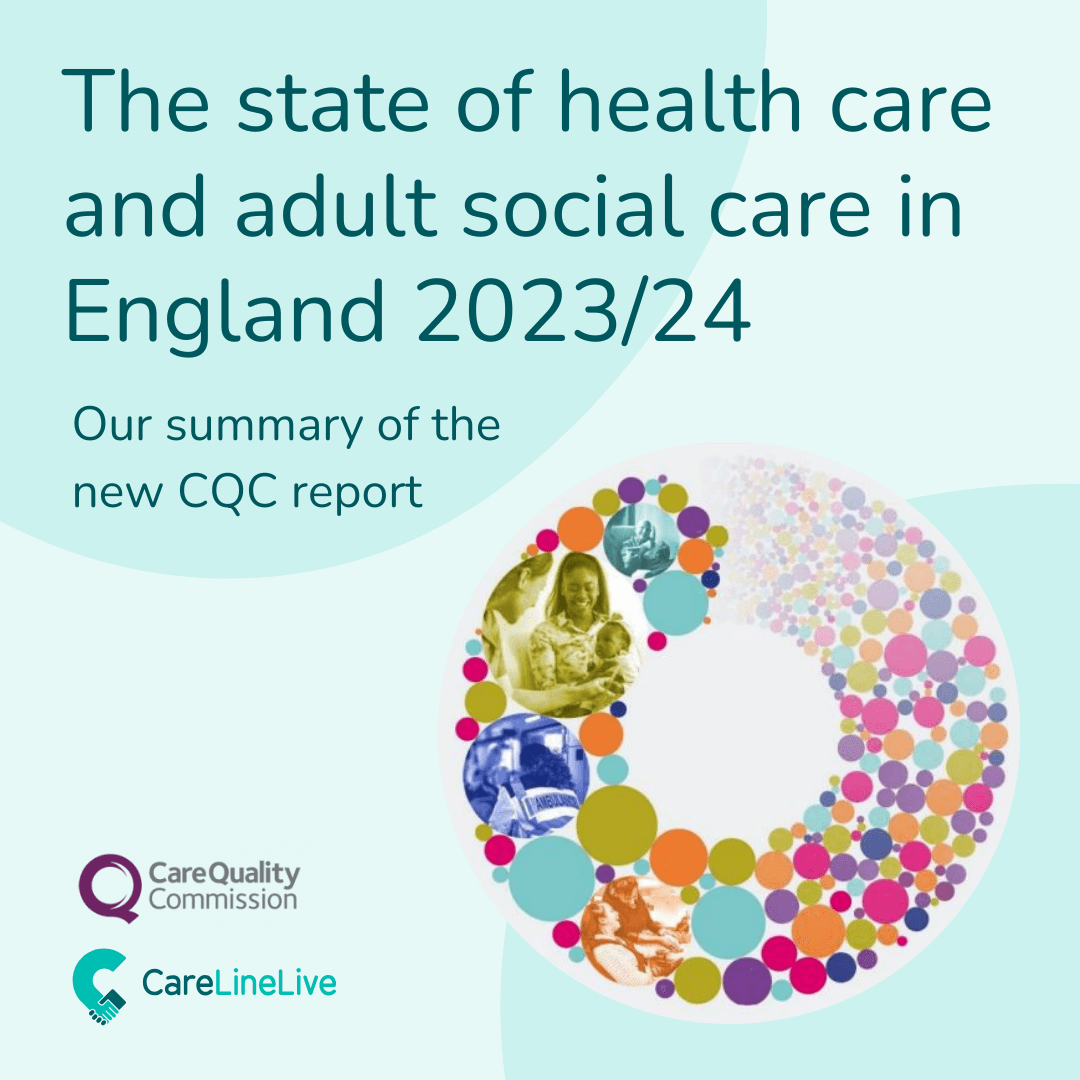CQC: State of health care and adult social care in England 2023/24
In CQC’s new report titled The State of Health Care and Adult Social Care in England 2023-2024 the organisation underscores a persistent continuation of concerning trends that have been apparent in recent months, and indeed, over recent years. Regrettably, there are no significant improvements evident across the industry. The report delivers information to both the public and service providers that is in the main, disheartening and frustrating.
Rising demand for social care amidst improvement in waiting times
The report shares that demand for social care is increasing, often surpassing the available supply. The good news is that the 2024 Spring Survey conducted by ADASS (Directors of Adult Social Services) reports an 8.9% decrease in the number of individuals awaiting needs assessments, totaling 227,000 people. Additionally, there has been an overall improvement in waiting times for 2023/24, with an 11% reduction in individuals waiting for assessments, care, direct payments, or reviews, dropping from over 470,500 to just over 418,000 between August 2023 and March 2024.
Local authorities are facing challenges in meeting the rising demand for care services, as highlighted by over 2 million requests for adult social care support received in 2022/23. This represents a 9% increase in new requests since 2017/18, while the provision of support has only increased by 4%. Consequently, there has been a significant rise of 27% in the number of new requests that did not receive any service. This discrepancy underscores the growing gap between demand and service availability in adult social care.
Let’s take a look at the key findings
- The surge in new requests for local authority adult social care support during the 2022/23 period was not accompanied by a proportional increase in the number of requests approved for long-term or short-term care aimed at enhancing individuals’ independence. Notably, the volume of new requests that did not lead to any service provision has risen by 27% since the 2017/18 period
- In April 2024, the shortage of care home beds and home-based care contributed to 45% of the delays in discharging patients who had been in acute hospitals for 14 days or longer. On average, nearly 4,000 individuals experienced delays each day. While some of these delays may have been related to health services rather than social care, it is likely that social care played a significant role in these hold-ups
- In the 2023/24 period, the North East and Yorkshire region recorded the highest percentage of delayed acute hospital discharges due to waiting for home-based care. Furthermore, the North East reported the lowest availability of homecare services, with a significantly reduced number of services available per 100,000 of the older population. In contrast, London experienced the highest proportion of delayed discharges from acute hospitals, primarily due to waiting for a bed in a care home, and had the fewest residential care home beds per 100,000 older residents
- By the end of the 2023/24 year, staff vacancies in care homes reached a low of 5.4%, marking the lowest rate observed in the past three years
- International recruitment trends have begun to stabilise during 2023/24. Notably and unsurprisingly, there has been a significant decline in the number of overseas workers applying for health and care worker visas, with an alarming 81% drop observed from April to July 2024 compared to the same timeframe in 2023
- In the 2023/24 period, the Care Quality Commission (CQC) made 106 referrals to partner agencies concerning issues related to modern slavery and labour exploitation. This figure represents nearly three times the number of referrals made in the previous year
The report highlights the urgent need for systemic changes to address the growing care gap. The slow progress emphasises the critical requirement for sustained investment, innovative strategies, and comprehensive support to improve and stabilise the adult social care landscape in England. The industry is anxiously awaiting the new Government’s commitment to social care investment. One thing is clear, significant investment is essential for a sector that is currently struggling to stay afloat!




